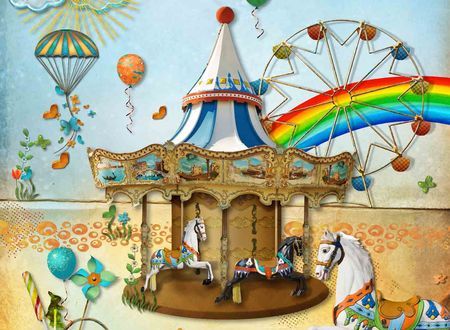Why me? It is a question that knocks many during the course of their life, some simply get knocked out by it while others, only knocked down. All of you must have seen, on many occasions, horrible things happening to good people and terrible people leading a life of richness. It is not uncommon to see those who took the utmost care of their health, suffer from dreadful diseases.
Many a time those who abused their body in every possible way go well into their nineties enjoying good health. Some, who always had been faithful to their partners are deserted by them for no apparent reason. This person who played by the rules ends up single, lonely, and devastated — both emotionally and physically, often financially too.
So, how does this all fit in? A right answer is the offspring of a correct question. Instead of brooding over matters negatively asking ‘Why me?’, you should examine the life of your role model and ask ‘Why not me?’ or ‘How can it be me?’ If you want to greatly enhance your capabilities, you need to start deriving power from Mother Nature. Nature, that is full of divine energy, has something extraordinary to offer — both towards fulfilling your material and spiritual ambitions. However, before you can have nature work for you, you need to develop a personal ecosystem — a conscious replica of Nature.
If you observe nature closely, you will find that there is no struggle in its play. It accepts what helps it to move and simply rejects all that doesn’t fit in its ecosystem. You offer it seed at the right time, it sprouts, other times, it perishes. You offer it artificial material like polythene and it is neither accepted nor destroyed; Nature simply rejects it.
Before you can develop a personal ecosystem, you need to spend time analyzing yourself. Know what is hot from what is not for you. Understand what triggers disagreeable reactions in you and what prompts the right actions from you. You need to know what makes you tick from what turns you sick. Since you are the one who is affected, this intellectual exercise focuses entirely on you. Do not go down the binge road or attempt to change anything in others. You are the subject, object, cause, and outcome we are concerned with. Once you start to know yourself, even if only intellectually at this stage, you are ready to synthesize.
Like nature, accept and therefore let sprout all that leads to bliss and reject all that doesn’t fit. Like the seed that perishes rather than sprouts when sown in the wrong season, learn to absorb all that is right but is offered to you at the wrong time. Nature does not leave any trace of the perished seed, it is called absorbing, forgiving, and forgetting. You must remember not to complain like Nature. Much like Her, whenever anything is offered to you, you should either accept, absorb, or reject it. They are the only three choices. It is impossible for anyone to grieve you unless you let that happen to yourself.
Unfortunately, the same goes for all the positive emotions too — no one can give you joy unless you allow yourself to be happy. Nature is always open to all, but it simply pursues its own course. Remember, however, this is only an intellectual exercise; it will not take you right to the destination. It will set you on the right path of discovering a state of peace and bliss though. Once you discover your own truth, all this will be like kindergarten education to a doctorate.
As part of this intellectual exercise, playing in the act of nature, you can choose from one of the four roles. The more you stick to the same role, the greater the proficiency in acting such a role out. Sometimes a switch is a necessity, at other times, merely a convenience. After all, you may be the CEO, you still report to the Board. Or you may be the Director, you don’t escape being appraised by your better half. I am elucidating the four roles for you. Ascertain which one you are playing presently and then work from there. As follows:
The Penitent
There is no dearth of people who take on the role of The Penitent. In a state of remorse, they choose to beg from nature. Begging only yields pennies and one must look downright pitiable to collect even that. The Penitent treads the ruinous path of self-pity, constantly whinging and has decided to cling onto his deluded belief about himself especially in regards to his inability to live a meaningful life. The hallmark of The Penitent is that he is always begging and is never happy. He has chosen to no longer try, assuming he ever did in the first place that is.
No one can help these beyond a certain point. Only when they choose to make a switch to another role are they ready to elevate themselves.
The Penitent is always wondering ‘Why me?’ and believes that the successful are so either on account of deceit or a stint of luck. A noteworthy point: no one wants to play this role. The one who does has often harbored great negativity and remorse; so much so that they refuse to be helped.
In some rare cases, due to prarabdha, one is forced to take on this role. God or Nature — two words you can safely interchange — does not come to the rescue of The Penitent, save in some pauranic legends. If you are drowning in the water and do not know how to swim, you can beg till the cows come home, no God is going to emerge anytime soon. You can have nature help you provided you know how to summon her in the hour of need.
The lives of the greatest yogis, tapasvis, bhaktas and divine souls are full of examples where they would tap into the power of nature to help others, rather than begging from her. Praying is not to be confused with begging. A prayer when unaccompanied with the right effort and bhava does indeed sound like pleading. Praying can yield desired results provided some conditions are met. I will cover this another time; it is a sublime and beautiful subject, one I will take delight in expounding. Getting back to the current topic, no matter what, try to refrain from playing The Penitent. There is no glory, only gluttony, in this role. Instead, choose one from the following three:
The Peasant
The majority out there play this role. They accept whatever is handed down to them; whether that is religion, philosophy, rules, teachings, methods, relationships; everything. The Peasant will accept it, mostly unquestioningly. They do not even dare to seek their own truth or make amends. They have found their comfort zone in their false sense of security. He is not concerned with the illusory nature of the world or its reality. From his point of view, he could not care less. He has a roof, even if rented, he gets his meals as well as his share of venery.
Day in, day out — he will show up at work until his last day of retirement; he will go home and have his dinner; he will copulate as permitted by his body and will blindly follow a certain religion. There is not much wrong in playing The Peasant. How does it matter to the frog of the well that there is an ocean outside. The Peasant makes a great supporter. Nature often takes care of The Peasant because he is playing by the rules and doing his share of work. As a result, he will receive his entitlements so long as he continues to effectively perform his role. This role has no charm or excitement.
The Peasant is not living but simply getting by. The day he is able to taste the richness of life or its right but seemingly unfair brutality, The Peasant wakes up from his slumber. He refuses to play this role any longer. Almost everyone plays this role at least once in their life. Some get tethered to the post of comfort while many choose to range and move about freely. Of those who break new ground, they generally play one of the following roles:
The Peer
At some point in time, often due to an inner awakening, The Peasant asks himself the most important question of his life — ‘Is there a better way to lead my life?’ When pursued, this question is sufficient to set the ball rolling. The Peer, unlike The Peasant, starts to build on his newfound individuality. He starts to create his own ecosystem no longer accepting everything at face value alone. He learns to question, a skill he develops and nurtures over time. His life has more action and excitement than The Peasant. But The Peer is a transient role. With great tenacity, he will either move to the top level or fall back to being a servant. On the positive side, even if he does go back to being The Peasant, he will never be the same again. He is going to be an outstanding one.
The Peer understands that nature must support him in his endeavors — after all, it is survival of the fittest. He is not happy just being a bee anymore, he wants to be the queen bee. The Peer starts to experience greater joy. He finds obstacles clearing themselves from his way, especially so if he persists with intelligence — adapting, adopting, abandoning, absorbing whatever, however, whenever and wherever needed. The crown of The Potentate awaits such seeker.
The Potentate
The Potentate has discovered his own truth. He fully understands that mere great physical effort does not equate to extraordinary results. In the accomplishment of any goal, several factors and forces play their part — a lot of which remain veiled, invisible, incomprehensible and inexplicable. The Potentate has struck a chord, actually, almost a deal, with Nature.
Nature passes on its divinity to The Potentate choosing him to serve humanity and help numerous people along the way. More than just an instrument of God, this one becomes a working replica of Nature. He gets almost all his work done with the mere power of a thought originated from his pure mind and released into the cosmos through his divine aura. His very voice and every word uttered becomes the supreme sanctum sound piercing through the hearts of those who come into contact with him. He has found his true nature, super-knowledge sprouts, as if automatically. He becomes the sovereign of an exalted and seraphic kingdom — the hearts of people.
So, what does it take to become The Potentate? Here is the answer; though brevity is not my forte, I shall try and make it short:
1. Naitikta: Inculcate morality in your speech, actions and thoughts.
2. Vairagya: Be indifferent to the pleasures of the material world.
3. Marga: Choose your path — bhakti or dhayana to begin with.
4. Shradha: Commit yourself fully to your chosen path.
5. Pramana: Form your view based on direct unsullied experience and not on intellectual fabrication.
6. Tapas: Persist with patience and intelligence until you get to the end.
7. Samadhi: Allow the truth, your own truth, to dawn on you.
8. Anubhava: Continue still until you are able to replicate your experience.
9. Turiya: Learn to absorb and live with the extraordinary bliss that gushes forth and stays with you.
10. Samarpana: Dedicate your life to helping others, so you may help other seekers.
The joy of giving far exceeds any other.
Peace.
Swami.
A GOOD STORY
There were four members in a household. Everybody, Somebody, Anybody and Nobody. A bill was overdue. Everybody thought Somebody would do it. Anybody could have done it but Nobody did it.
Don't leave empty-handed, consider contributing.It's a good thing to do today.









Comments & Discussion
39 COMMENTS
Please login to read members' comments and participate in the discussion.